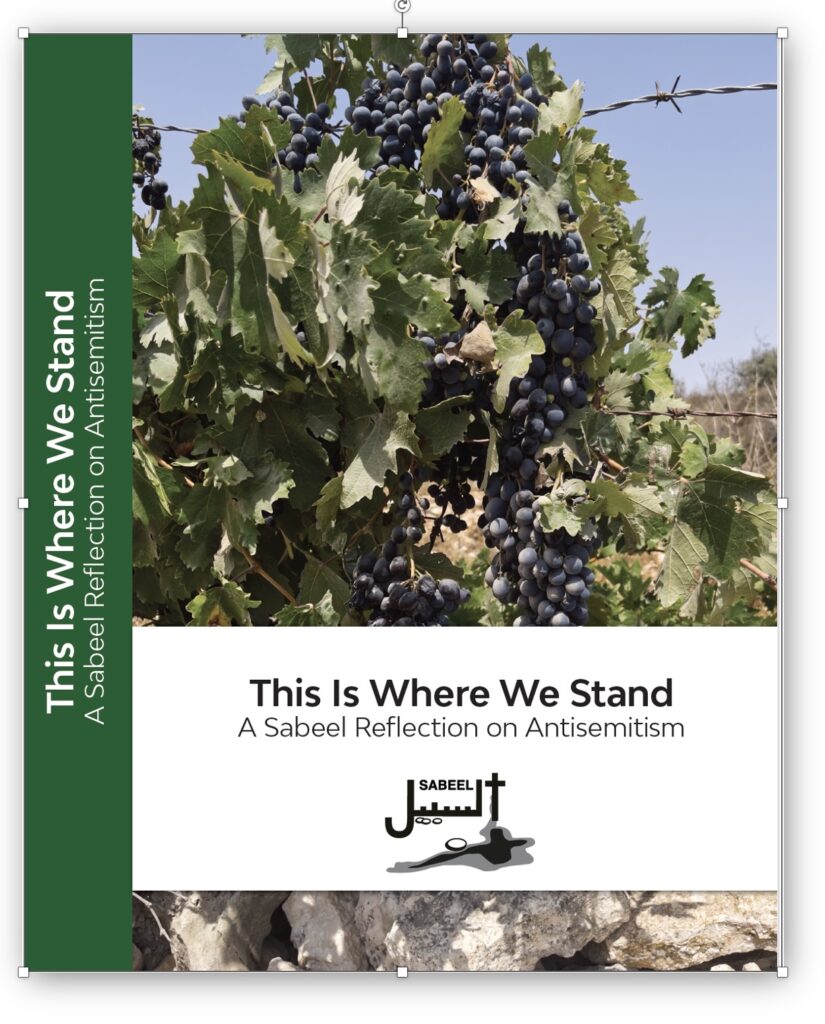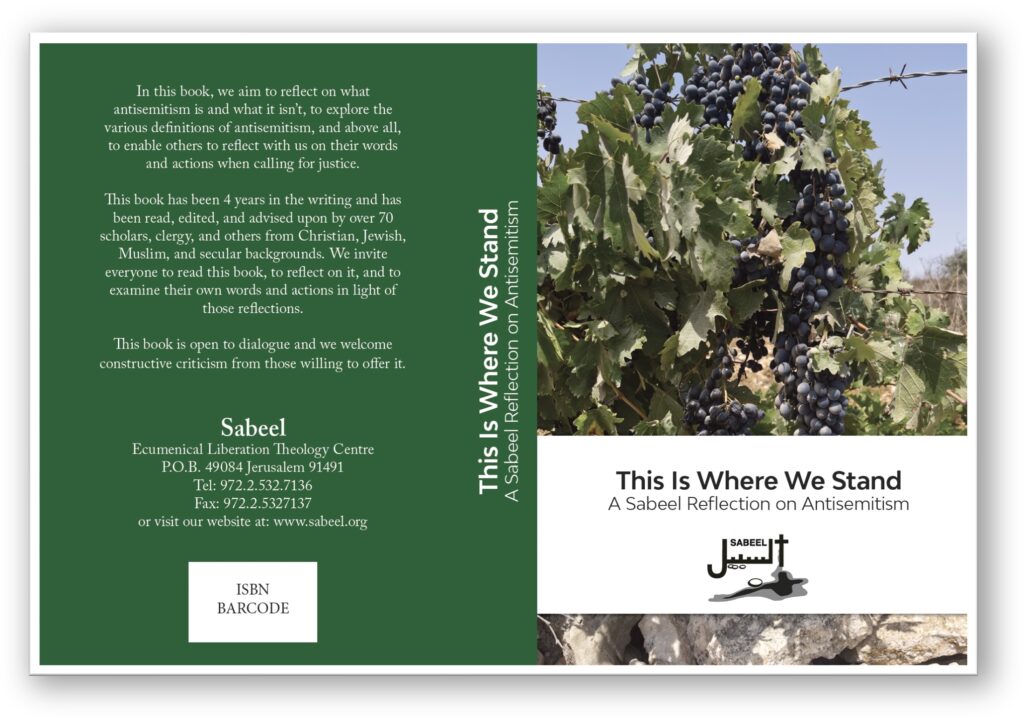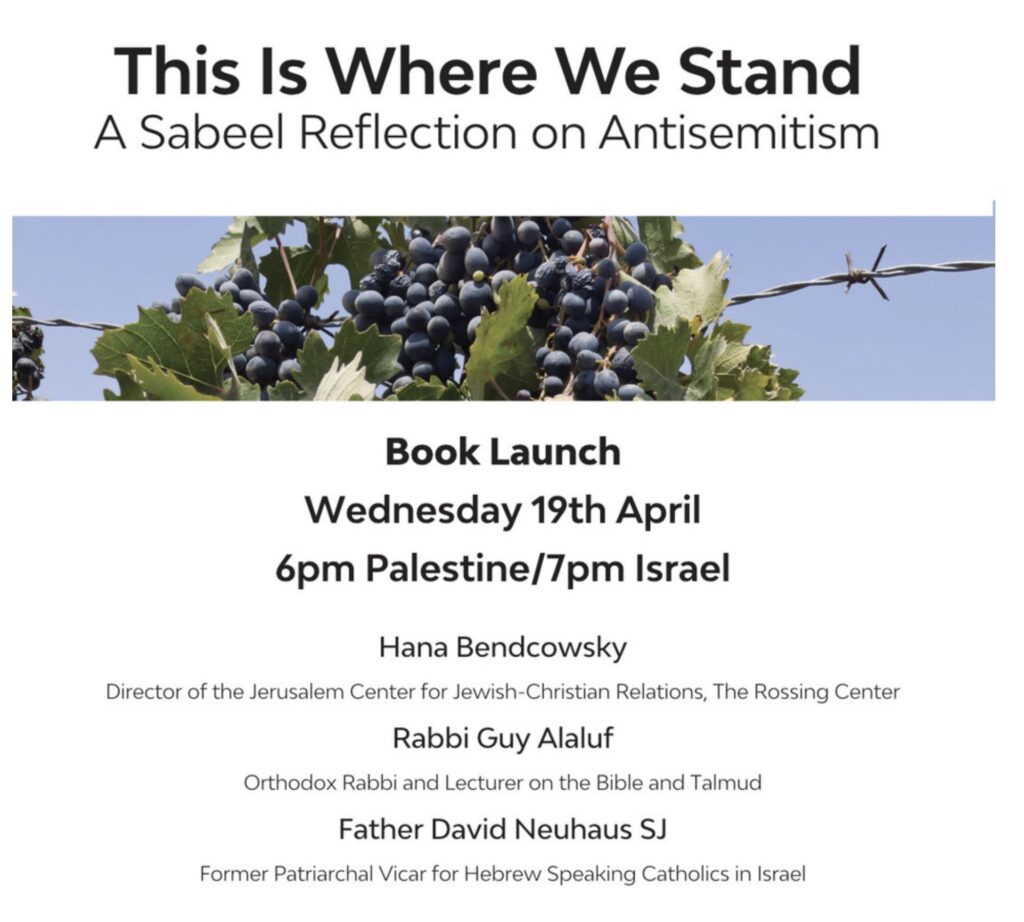Why then do we write about antisemitism? The answer is simple.

The foundations on which we struggle against Palestinian oppression are the same foundations on which we are committed to fighting against antisemitism. Furthermore, if it is wrong of the state of Israel to deny our full humanity, it is futile and unacceptable for us to do the same. There will be no peace in our land until all of us recognize the full humanity of all who live here – especially Palestinian refugees, forcibly exiled who wish to return and have been denied that right.
From the Preface
As Christians, we believe – with our Jewish brothers and sisters – that all human beings are created in the image and likeness of God. As human beings, we endorse the United Nations Universal Declaration of Human Rights (1948) and the human rights conventions based upon it.

It is wrong for the state of Israel to discriminate against, dispossess, and displace us, because we are as human as Israeli Jews are. Equally, it is wrong for anyone anywhere to hate, discriminate against, or seek to destroy Jews, because Jews – Israeli or not – are as human as we are.
There is another reason.
If it is wrong of the state of Israel to deny our full humanity, it is futile and unacceptable for us to do the same. There will be no peace in our land until all of us recognize the full humanity of all who live here – especially Palestinian refugees, forcibly exiled who wish to return and have been denied that right.
Already this book has been of value to the Sabeel community. Writing it has helped us to examine how antisemitism may arise in ourselves, our organization, and our communities in the context of Palestine and Israel.
We recognize the need for internal reflection on the way we speak, act, and write. To allow an “us and them” mentality to infect our work for justice both violates the tenets of our faith and hurts the cause of liberation.
We offer this book as a first statement, open to revision, of where we stand. We offer it for study and discussion, and we welcome feedback in the form of constructive criticism or other comment.
The text was written by a small team over many years. Many people from Christian, Muslim, Jewish, and secular backgrounds took time to read the various drafts and supply academic, theological, and editorial comments. Sabeel is grateful to all who helped; they are, of course, not responsible for our conclusions.
We do not claim to speak here for our Jewish, Muslim, or secular friends, nor, indeed, for the Christian community.
We speak to our Christian brothers and sisters in the first place here in Palestine. Likewise, we speak to the others with respect. We trust that our words will be heard with the same goodwill with which we say them.
This book is the first in a series of education tools we are planning to publish to help Sabeel and our friends identify where we may be caught up in prejudice or discrimination. We plan similar books on discrimination against Islam and against Christianity in the context of the struggle between Palestine and Israel.
We hope that all who read this book will use it not just as an educational resource, but also as a tool for self-reflection and transformation. We invite our local and international partners, as well as the larger community, to examine their rhetoric, action, organizing, and strategy to ensure that the movement for Palestinian liberation is grounded firmly in the values of human rights for all.
To buy the PDF version of the book please click here.
To buy a hardcopy of the book please click here.
Download a PDF copy of This is Where We Stand for $20 from Friends of Sabeel North America (FOSNA)

Sabeel is a center for Palestinian liberation theology based in both occupied Palestine and Israel. Our aim is to stand with those who are on the margins of society, and to use theology to liberate those who are oppressed. Sabeel strives to free theology from those who would wish to use it as a weapon against others. We seek to understand our situation and our struggle in the light of the Christian faith.
